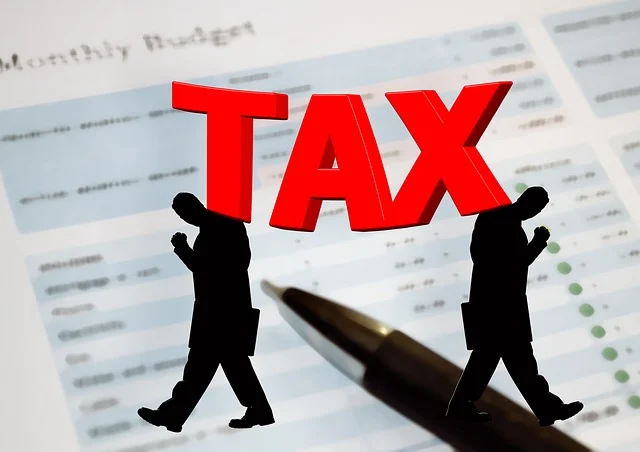Filing Taxes as an Expat in the Netherlands: A Comprehensive Guide

Moving to the Netherlands as an expat is an exciting adventure, but it also comes with responsibilities, including understanding and complying with the Dutch tax system. The Netherlands has a well-organized tax system, but it can be complex, especially for newcomers. This guide provides a comprehensive overview of filing taxes as an expat in the Netherlands, covering key concepts, deadlines, deductions, and tips to make the process smoother.
Understanding the Dutch Tax System
1. Tax Residency
- Tax Resident: If you live in the Netherlands for more than six months, you are considered a tax resident and are taxed on your worldwide income.
- Non-Tax Resident: If you live in the Netherlands for less than six months, you are taxed only on income derived from Dutch sources.
2. Types of Taxes
- Income Tax (Inkomstenbelasting): Tax on your income, including employment, business, and investment income.
- Wage Tax (Loonbelasting): Withheld by your employer from your salary.
- Value Added Tax (BTW): A consumption tax on goods and services, typically included in the price.
- Municipal Taxes: Local taxes, such as property tax (onroerendezaakbelasting) and waste collection fees.
Income Tax in the Netherlands
Tax Brackets (2023)
The Netherlands has a progressive income tax system with three brackets:
- Box 1 (Income from Work and Homeownership):
- Up to €73,031: 36.93%
- Above €73,031: 49.50%
- Box 2 (Income from Substantial Interest): 26.9%
- Box 3 (Income from Savings and Investments): A flat rate based on a deemed return, currently 32%.
Taxable Income
- Box 1: Salary, bonuses, pensions, and income from homeownership (if applicable).
- Box 2: Income from owning at least 5% of a company’s shares.
- Box 3: Income from savings, investments, and other assets.
Key Tax Deadlines
- Income Tax Return: The deadline for filing your income tax return is May 1 of the following year. If you use a tax advisor, you can request an extension until September 1.
- Provisional Tax Assessments: If you expect to owe additional taxes, you can file a provisional tax return to avoid penalties.
- Municipal Taxes: Deadlines vary by municipality, so check with your local government.
Tax Deductions and Allowances
The Netherlands offers several tax deductions and allowances to reduce your taxable income. Some of the most common ones include:
1. General Tax Credit (Algemene Heffingskorting)
A tax credit available to all taxpayers, based on income level.
2. Employment Tax Credit (Arbeidskorting)
A credit for those with income from employment, designed to reduce the tax burden on workers.
3. Mortgage Interest Deduction
If you own a home in the Netherlands, you can deduct mortgage interest payments from your taxable income.
4. Healthcare Costs
You can deduct healthcare expenses that exceed a certain threshold (eigen risico).
5. Education Costs
Expenses for work-related education may be deductible.
6. Charitable Donations
Donations to approved charities can be deducted, subject to certain conditions.
Special Tax Regimes for Expats
1. 30% Ruling
The 30% ruling is a tax advantage for highly skilled expats, allowing employers to pay 30% of the employee’s salary as a tax-free allowance. To qualify:
- You must be recruited from abroad.
- Your salary must meet a minimum threshold (€41,954 in 2023).
- You must have specific expertise not readily available in the Dutch labor market.
2. Partial Non-Resident Tax Status
Expats with the 30% ruling can opt for partial non-resident tax status, meaning they are only taxed on Dutch-source income in Box 2 and Box 3.
Filing Your Tax Return
1. Online Filing (DigiD)
Most taxpayers file their returns online using DigiD, a digital identification system. You’ll need a DigiD account to access the tax portal.
2. Paper Filing
If you prefer, you can file a paper return, but this process is slower and less efficient.
3. Using a Tax Advisor
Many expats choose to hire a tax advisor to navigate the complexities of the Dutch tax system. This is especially useful if you have multiple income sources, investments, or international tax considerations.
Tips for Expats Filing Taxes in the Netherlands
- Keep Records: Maintain detailed records of your income, expenses, and deductions throughout the year.
- Understand Your Tax Residency Status: Determine whether you are a tax resident or non-resident, as this affects your tax obligations.
- Apply for the 30% Ruling: If you qualify, this can significantly reduce your tax burden.
- Stay Informed: Tax laws and rates can change, so stay updated on the latest regulations.
- Seek Professional Help: Consider hiring a tax advisor, especially if your financial situation is complex.
Common Mistakes to Avoid
- Missing Deadlines: Late filing can result in penalties and interest charges.
- Incorrect Information: Ensure all information on your tax return is accurate to avoid audits or fines.
- Overlooking Deductions: Take advantage of all available deductions and credits to minimize your tax liability.
- Ignoring Municipal Taxes: Don’t forget to pay local taxes, such as property tax and waste collection fees.




